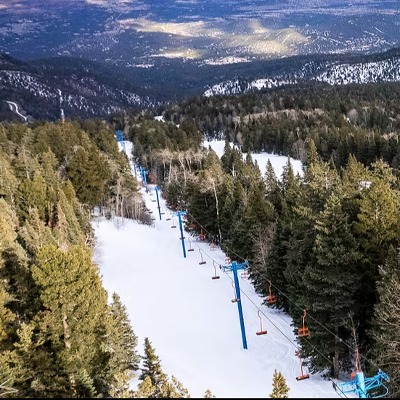Austria: Preliminary Winter Season Still Shows Significant Losses Compared To Pre-Crisis Level

Due to the renewed lockdown in November and December 2021, the start of the winter season was bumpy, but the Christmas business was surprisingly good despite the onset of the Omicron wave.
The Oesterreichische Nationalbank (OeNB) overnight stay forecast for January 2022, based on payment card transactions, shows a decline in total overnight stays of 26 percent compared to the pre-crisis level (January 2020) - driven by a 31 percent decline in overnight stays by foreign guests. The previous winter season (November 2021 to January 2022) is therefore more than a third below the pre-crisis level. February will be decisive for the further development of the winter season, as this is the month with the highest turnover and overnight stays due to the semester break. Although it currently seems likely
Expenditure using payment cards in Austria showed a volatile development at the beginning of the year. In the first week of the year, compared to the pre-crisis period, there was an increase in turnover from guests from Germany and a decline in guests from abroad. In the second and third calendar week, the growth rates in spending by domestic and foreign guests fell slightly - this development was continued for the fourth week. On average, in January 2022 (compared to January 2020), there was an 8 percent increase in turnover for domestic tourists. On the other hand, the sales of foreign tourists fell by 29 percent. In total, the decline was 22 percent.
The travel expenses based on payment card transactions indicate a further significant drop in overnight stays of 26 percent in the first month of the year compared to January 2020. This is due to a 31 percent drop in overnight stays by foreign guests, while overnight stays by domestic guests are likely to have reached the level of January 2020.
In the first three months of the 2021/22 winter season, overnight stays were 36 percent below the pre-crisis level. On the one hand, the lockdown in November and December 2021, which fell in the preseason, and on the other hand, the tightened entry rules for travelers returning to important countries of origin such as Germany, had a dampening effect. The development was supported by the surprisingly strong Christmas business. The focus of the second half of the winter season is the development in February, as this is traditionally the month of the winter season with the highest turnover and overnight stays with the semester break. There is currently little to suggest that there will be another lockdown, but against the background of the current infection situation, demand is falling, especially from abroad, currently much weaker than before the crisis. Should the travel behavior of the second half of January continue in February, this would mean a significant improvement compared to the previous year, but still large losses compared to the pre-crisis comparison period. On the other hand, a rapid flattening of the omicron wave could lead to a revival of tourism in the course of February.













